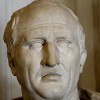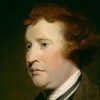“ Wise men will apply their remedies to vices, not to names,—to the causes of evil, which are permanent, not to the occasional organs by which they act, and the transitory modes in which they appear. Otherwise you will be wise historically, a fool in practice. Seldom have two ages the same fashion in their pretexts, and the same modes of mischief. Wickedness is a little more inventive. ”
Edmund Burke, Reflections on the Revolution in France (1790). copy citation
| Author | Edmund Burke |
|---|---|
| Source | Reflections on the Revolution in France |
| Topic | wickedness age |
| Date | 1790 |
| Language | English |
| Reference | |
| Note | |
| Weblink | http://www.gutenberg.org/files/15679/15679-h/15679-h.htm#REFLECTIONS |
Context
“You would not cure the evil by resolving that there should be no more monarchs, nor ministers of state, nor of the Gospel,—no interpreters of law, no general officers, no public councils. You might change the names: the things in some shape must remain. A certain quantum of power must always exist in the community, in some hands, and under some appellation. Wise men will apply their remedies to vices, not to names,—to the causes of evil, which are permanent, not to the occasional organs by which they act, and the transitory modes in which they appear. Otherwise you will be wise historically, a fool in practice. Seldom have two ages the same fashion in their pretexts, and the same modes of mischief. Wickedness is a little more inventive. Whilst you are discussing fashion, the fashion is gone by. The very same vice assumes a new body. The spirit transmigrates; and, far from losing its principle of life by the change of its appearance, it is renovated in its new organs with the fresh vigor of a juvenile activity.”
source


